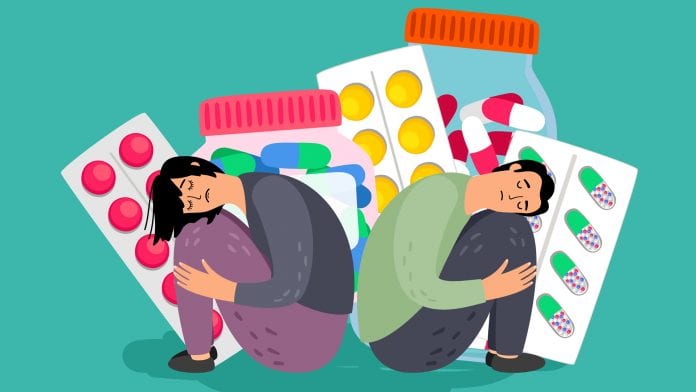
Nature or nurture has always been the big question when it comes to addiction. Now, a researcher has discovered that there is a link between our genes and addiction.
Why some people are at more risk of addiction than others has been largely left unanswered despite many years of research. Many people ask whether there is a link between genes and addiction or whether an individual’s family environment plays a role. The short answer is that it’s both. However, recent research conducted at the OU College of Medicine, zeroes in on a specific gene and how it responds to a person’s environment.
William R. Lovallo, Ph.D., recently published research that showed how a tiny genetic mutation can put people at higher risk for alcohol or drug addiction, revealing that there really is a link between our genes and addiction. His research was published in the world’s leading journal on alcoholism, Alcoholism: Clinical and Experimental Research.
The study
As a senior research career scientist at the VA Medical Center, Lovallo has conducted studies on veterans with alcohol addiction. However, those studies, like many others, concentrated on people after they became addicted to a substance. He knew he wanted to shift his research toward understanding the causes of addiction and how to prevent it.
Collaborating on the project with the University of Arkansas for Medical Sciences and the National Institute on Alcohol Abuse and Alcoholism, Lovallo and colleagues wanted to see if there was a link between genes and addiction so tested to see if the risk for alcoholism may be enhanced by exposure to early‐life adversity (ELA) in persons with genetic vulnerabilities.
The study examined ELA in the presence of a common variant of the gene for the enzyme catechol‐O‐methyltransferase (COMT, Val158Met, rs4680) in relation to cortisol reactivity, the onset of early drinking, and experimentation with drugs. Saliva cortisol reactivity to speech and mental arithmetic stress was measured in 480 healthy young adults who were 23.5 years of age, being 50% female and 50% male, who experienced either zero, one, or less than two forms of ELA during childhood and adolescence, provided information on use of alcohol and recreational drugs, and were genotyped for the Val158Met polymorphism.
The COMT gene
The research focused on a small mutation of the COMT gene. This is the gene that helps the body manage dopamine, a chemical that is released when a person drinks alcohol, takes a drug like amphetamine or during pleasurable activities such as during sex or whilst eating food.
When looking at the COMT gene Lovallo discovered there is an interplay between a person’s genes and addiction because of adversity during childhood. People with this mutation of the COMT gene are more vulnerable to the effects of stress in their early lives, such as divorce or emotionally distant parents. That heightened vulnerability often leads to consumption of alcohol and drugs when younger than age 15, which is one of the biggest independent predictors of addiction.
Genes and addiction: responding to our environment
Speaking about the study, Lovallo said: “Early-life adversity doesn’t make everyone an alcoholic but this study showed that people with this genetic mutation are going to have a higher risk for addiction when they had a stressful life growing up.”
Because the COMT gene is involved with how well dopamine works in the brain, the behaviour of the genetic mutation is especially revealing.
Lovallo continued: “This one random mutation makes a difference in how the COMT gene works fine in one person but not as well in another person. There is no such thing as a gene for addiction, but there are genes that respond to our environment in ways that put us at risk. You have to have the right combination to develop the risk factors.”
“Many of us know people who drink alcohol moderately and never have any problems. And we know people who drink a little and then go down the path toward alcoholism. What’s the difference between going down that path and not going down that path? Now we have a better understanding that it’s not just exposure to alcohol or drugs that leads to problems; there is a genetic component.
“Addiction is a real health problem, and to be making progress toward understanding it is one of the most exciting and worthwhile things I’ve ever done.”
There is no one gene that indicates whether an individual will become and addict however this study shows there is some correlation between an individuals genes and addiction habits later in life.









